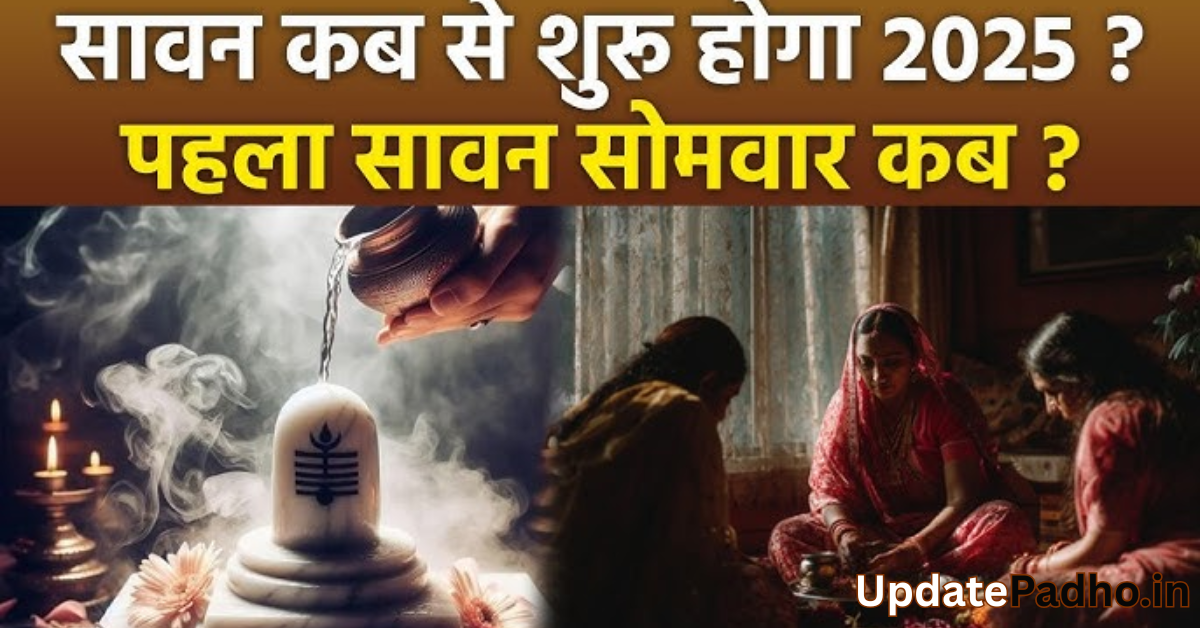The month of Sawan—also known as Shravan—holds a special place in the hearts of devotees of Lord Shiva, or Mahadev. It is considered the holiest of the twelve months in the Hindu calendar, marked by deep spiritual energy, penance, and divine connection. As monsoon rains bless the earth, hearts of devotees overflow with bhakti (devotion), expressed through pooja, fasting, and chanting of Om Namah Shivaya. This sacred period is not just a ritual—it is a spiritual journey that strengthens the bond between the devotee and the divine.
Why is Sawan Special for Lord Shiva?
According to ancient scriptures and Hindu mythology, Sawan is the month when Samudra Manthan (the churning of the cosmic ocean) took place. During this event, Halahala, a deadly poison, emerged from the ocean. To save the universe, Lord Shiva consumed the poison and held it in his throat, which turned his throat blue, earning him the name Neelkanth. As a mark of gratitude and devotion, people began to worship Shiva throughout this month with utmost reverence.
It is also believed that during Sawan, Lord Shiva’s cosmic energy is more easily accessible to his devotees. Mondays (Somvar) are especially significant, and Sawan Somvar Vrat (fasting on Mondays) is observed with dedication to seek Mahadev’s blessings for health, wealth, and peace.
The Essence of Shiva Pooja During Sawan
Worship of Lord Shiva during Sawan is a deeply personal and spiritual practice. The rituals may vary from region to region, but the essence remains the same—devotion, surrender, and purification of the self.
Here’s how devotees perform Shiva Pooja during Sawan:
- Abhishekam (Holy Bathing of Shiva Lingam):
Devotees pour water, milk, honey, curd, and ghee on the Shiva Lingam while chanting Shiva mantras. Each element used in Abhishekam has symbolic significance, cleansing both the Lingam and the mind of the devotee. - Offering of Bilva Leaves:
The trifoliate Bilva (Bel) leaves are believed to be extremely dear to Mahadev. Offering these to Shiva Lingam is said to remove sins and attract blessings. - Chanting Mantras:
Reciting mantras like “Om Namah Shivaya”, Maha Mrityunjaya Mantra, and Rudrashtakam brings peace to the mind and draws divine energy into one’s life. - Lighting Diyas and Incense:
Lighting a lamp or incense sticks in front of Shiva creates a sanctified environment and symbolizes the light of inner consciousness. - Fasting and Meditation:
Many observe fasts on Mondays, consuming only fruits or light meals after sunset. Fasting is a form of self-discipline and helps devotees stay focused on prayer and meditation.
Spiritual Benefits of Worshipping Mahadev in Sawan
The spiritual intensity of Sawan makes it a powerful time for inner transformation. Here are some key benefits of engaging in Shiva Pooja during this month:
- Mental Peace: The repetitive chanting and rituals calm the mind and reduce stress and anxiety.
- Karmic Cleansing: Offering prayers to Lord Shiva during Sawan is believed to clear past karmas and pave the way for spiritual progress.
- Fulfillment of Desires: Devotees believe that sincere prayers during Sawan can help fulfill heartfelt wishes—be it for a job, marriage, or health.
- Spiritual Growth: This is a time to introspect, connect with the divine, and rise above material attachments.
Sawan Celebrations Across India
While the essence of Sawan remains universal, the celebrations vary:
- In Uttar Pradesh, devotees throng temples like Kashi Vishwanath with offerings and chants.
- In Maharashtra, pilgrims walk barefoot in the Wari tradition.
- In South India, Shiva temples like Chidambaram and Rameshwaram witness special poojas and deep devotion.
- The Kanwar Yatra is a massive pilgrimage where millions of Shiva bhakts carry holy water from the Ganges to offer it to their local Shiva temples.
Conclusion: Sawan as a Pathway to Inner Shiva
In a world full of noise and distractions, the month of Sawan reminds us to pause, reflect, and connect with the infinite stillness of Mahadev. Through pooja, fasting, and devotion, one can experience not just the external rituals but the internal awakening of the soul. Worshipping Lord Shiva in Sawan is not merely a tradition—it is an opportunity to dissolve the ego, embrace simplicity, and walk the path of truth and liberation.
May this holy month bring peace, strength, and divine grace to all. Har Har Mahadev!



